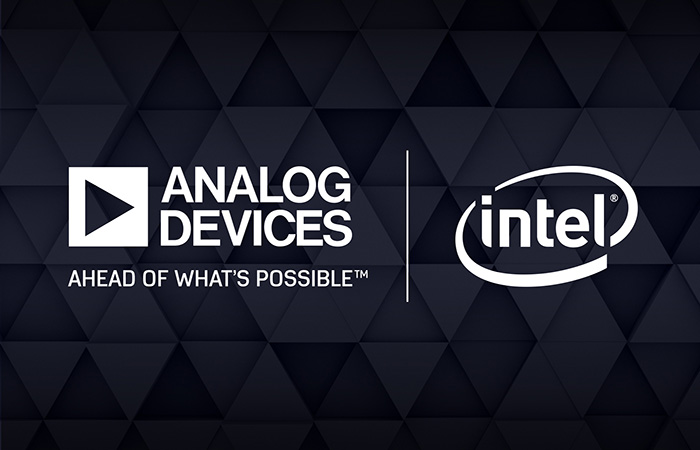
Analog Devices, Inc. (ADI) has announced its collaboration with Intel Corporation to create a flexible radio platform that addresses 5G network design challenges and will enable customers to scale their 5G networks more quickly and economically. The new radio platform combines the advanced technology of ADI’s radio frequency (RF) transceivers with the high performance and low power of Intel Arria 10 Field Programmable Gate Arrays (FPGAs) giving developers a new set of design tools for more easily creating optimised 5G solutions.
The communications market is moving at a rapid pace to keep up with the strains put on bandwidth and latency as more people transact business digitally and consume and transmit data from everywhere. A significant increase in traffic over existing wireless networks is occurring in both private networks and public spaces. As a result, wireless operators are looking to shorten development times and cost-effectively implement new solutions that increase the capacity, performance and reliability of 5G networks. Through a mix of open standards and existing communication links, mobile network operators are developing a broader set of specifications and supporting a growing span of use cases.
“This new radio platform reduces the overall cost of design and quickens our customers’ time to market without sacrificing system-level performance,” said Joe Barry, Vice President of the Wireless Communications Business Unit at ADI. “By coupling ADI’s transceivers featuring advanced digital frontend (DFE) functionality with Intel’s leading FPGA technology, our customers’ solutions can achieve the high level of performance they require while increasing their flexibility to more efficiently resolve emerging network issues.”
The high-performance, O-RAN compliant solution uses ADI’s market-leading software defined transceiver, which includes an innovative DFE capability, with Intel’s Arria A10 FPGA to create a highly flexible architecture. The collaboration will allow designers to customise frequency, band and power to achieve higher system performance at lower cost.
“This collaboration between ADI and Intel enables the development of new radio solutions for 5G networks,” said CC Chong, Senior Director, Head of Wireless & Access, Programmable Solution Group at Intel. “We look forward to working with ADI to expedite hardware development by offering FPGA platforms that are flexible to meet changing requirements, are easy to use, and remove many of the complex barriers of RF and digital product development.”
About Analog Devices
Analog Devices (Nasdaq: ADI) is a leading global high-performance analogue technology company dedicated to solving the toughest engineering challenges. We enable our customers to interpret the world around us by intelligently bridging the physical and digital with unmatched technologies that sense, measure, power, connect and interpret. Visit http://www.analog.com/
(ADI-WEB)
Intel, the Intel logo, Xeon, and Arria are trademarks of Intel Corporation or its subsidiaries.
This release may be deemed to contain forward-looking statements intended to qualify for the safe harbor from liability established by the Private Securities Litigation Reform Act of 1995. These forward-looking statements include, among other things, our statements regarding the expected opportunities, benefits, cost savings, product and service offerings and developments associated with the collaboration between Analog Devices, Inc. and Intel Corporation relating to the new radio platform that addresses 5G network challenges, that are based on current expectations, beliefs, assumptions, estimates, forecasts, and projections about the industry and markets in which the companies operate. The statements contained in this release are not guarantees of future performance, are inherently uncertain, involve certain risks, uncertainties, and assumptions that are difficult to predict. Therefore, actual outcomes and results may differ materially from what is expressed in such forward-looking statements, and such statements should not be relied upon as representing Analog Devices' expectations or beliefs as of any date subsequent to the date of this press release. Important factors that could cause actual results to differ materially from the results described, implied or projected in any forward-looking statements include difficulty or delay in our design, development, production and marketing of products, technologies and solutions, including those associated with the collaboration between Analog Devices and Intel, the course, impacts and uncertainty of the COVID-19 global pandemic, and other risk factors described in the most recent filings of Analog Devices with the Securities and Exchange Commission. Analog Devices does not undertake any obligation to update forward-looking statements made by us.










Guest blog: exploring opportunities for hydrogen combustion engines
"We wouldn't need to pillage the environment for the rare metals for batteries, magnets, or catalisers". Batteries don't use rare...